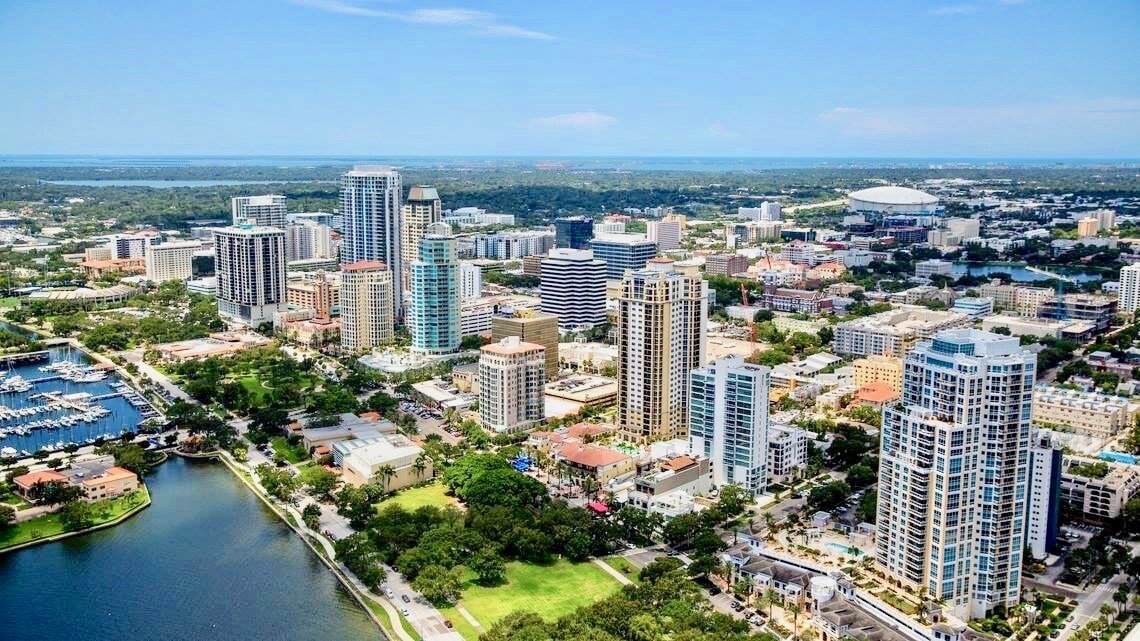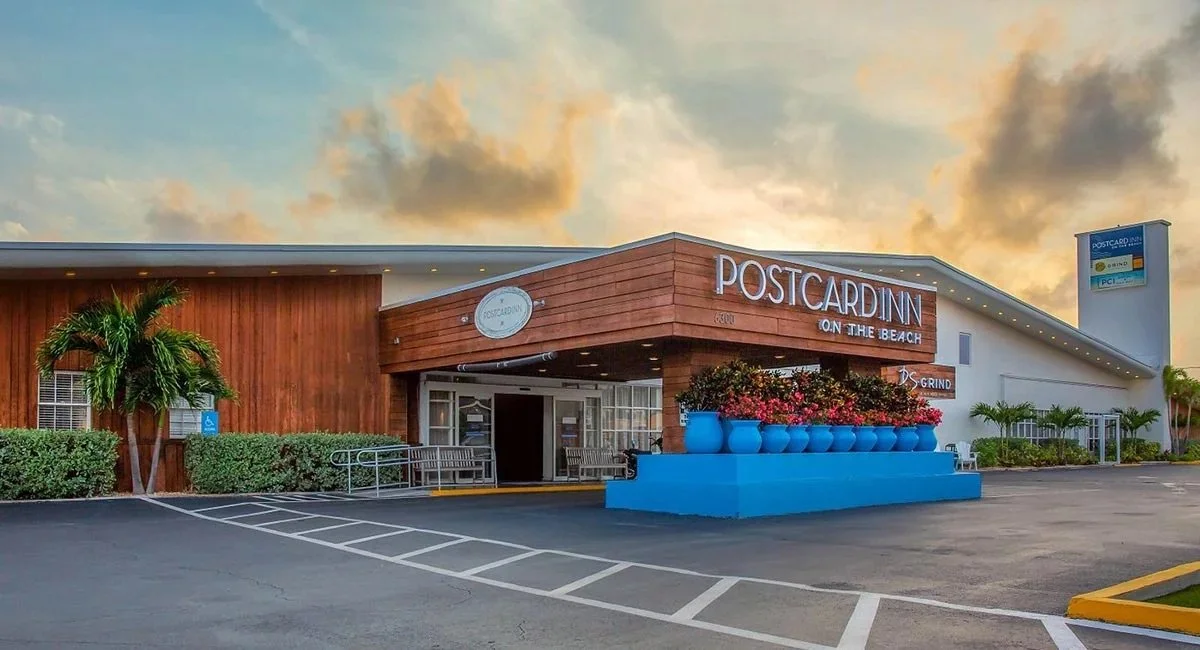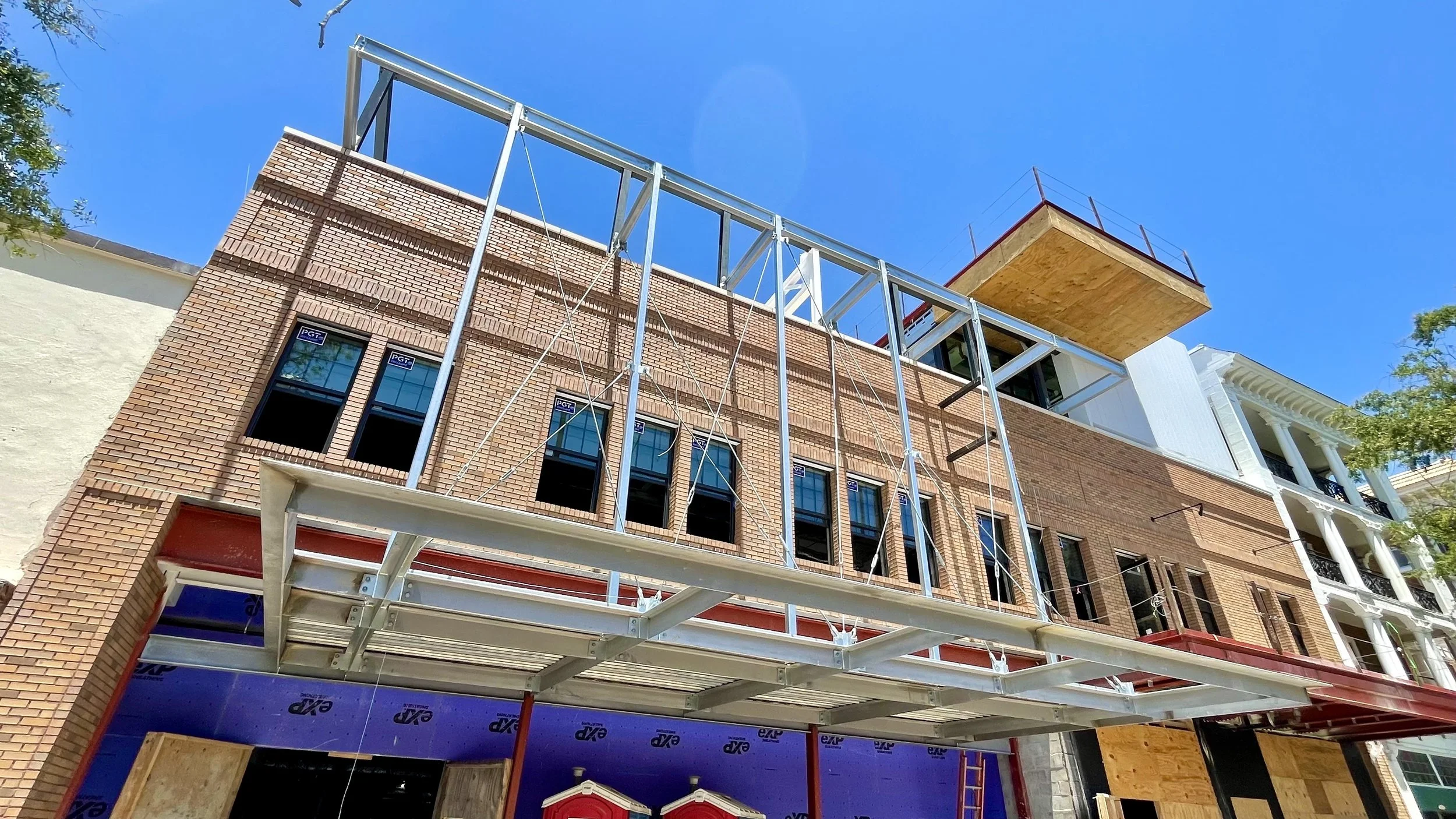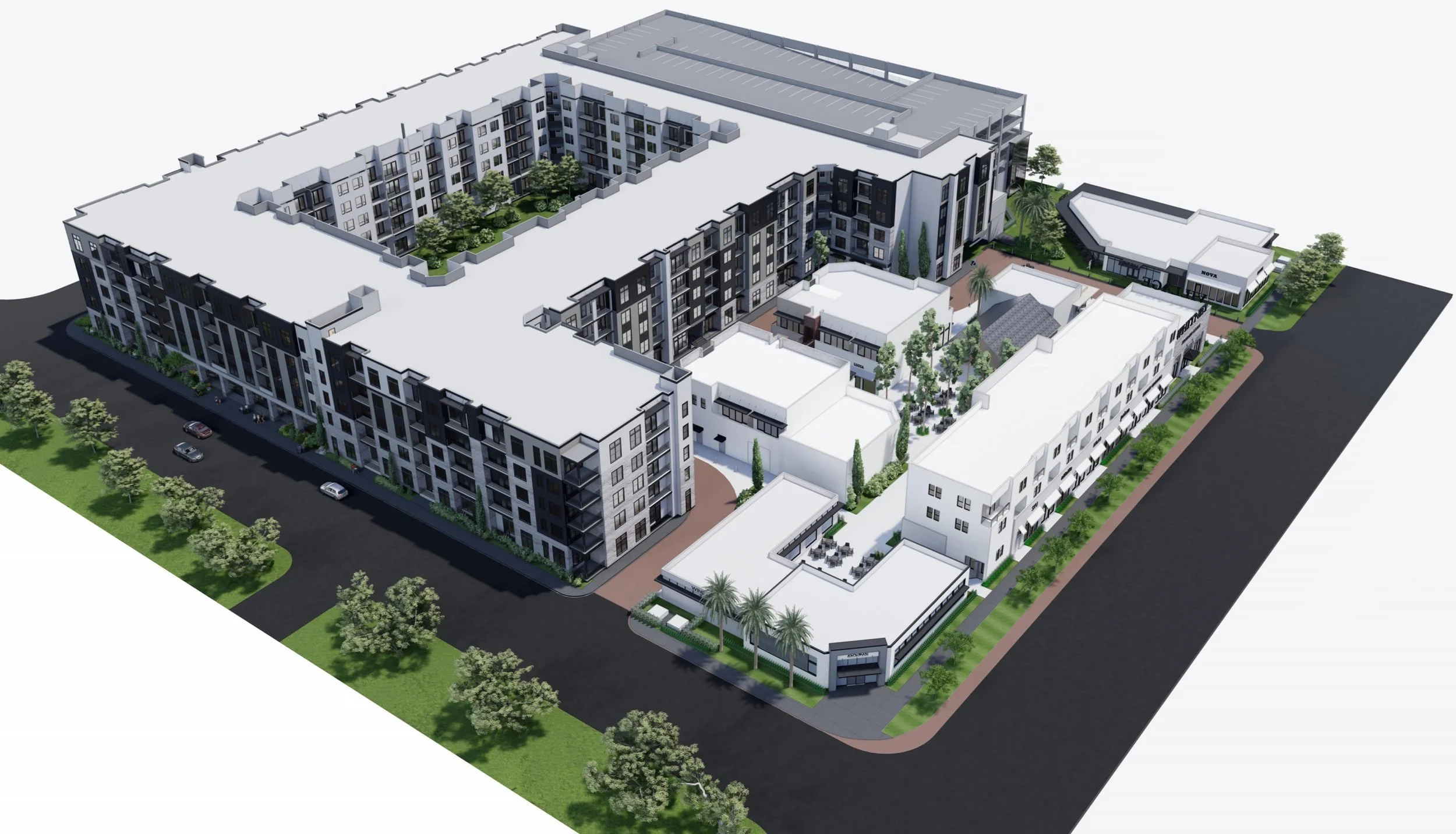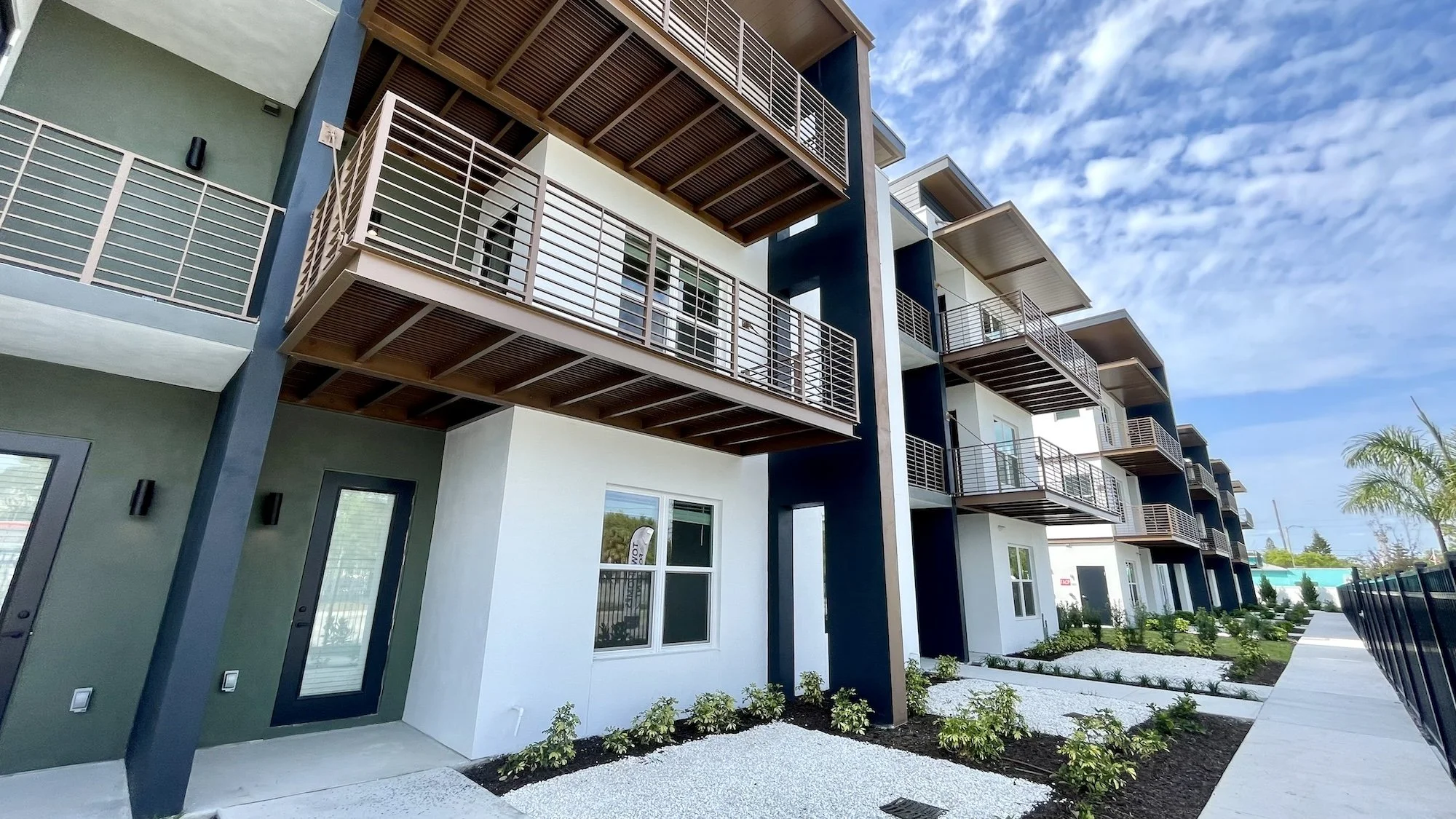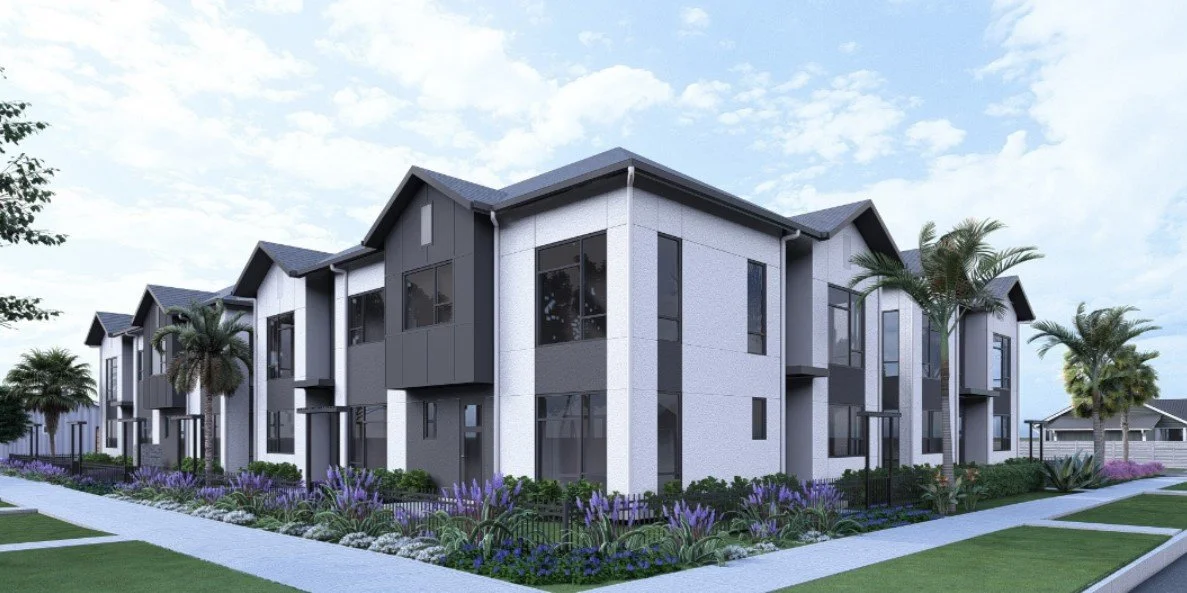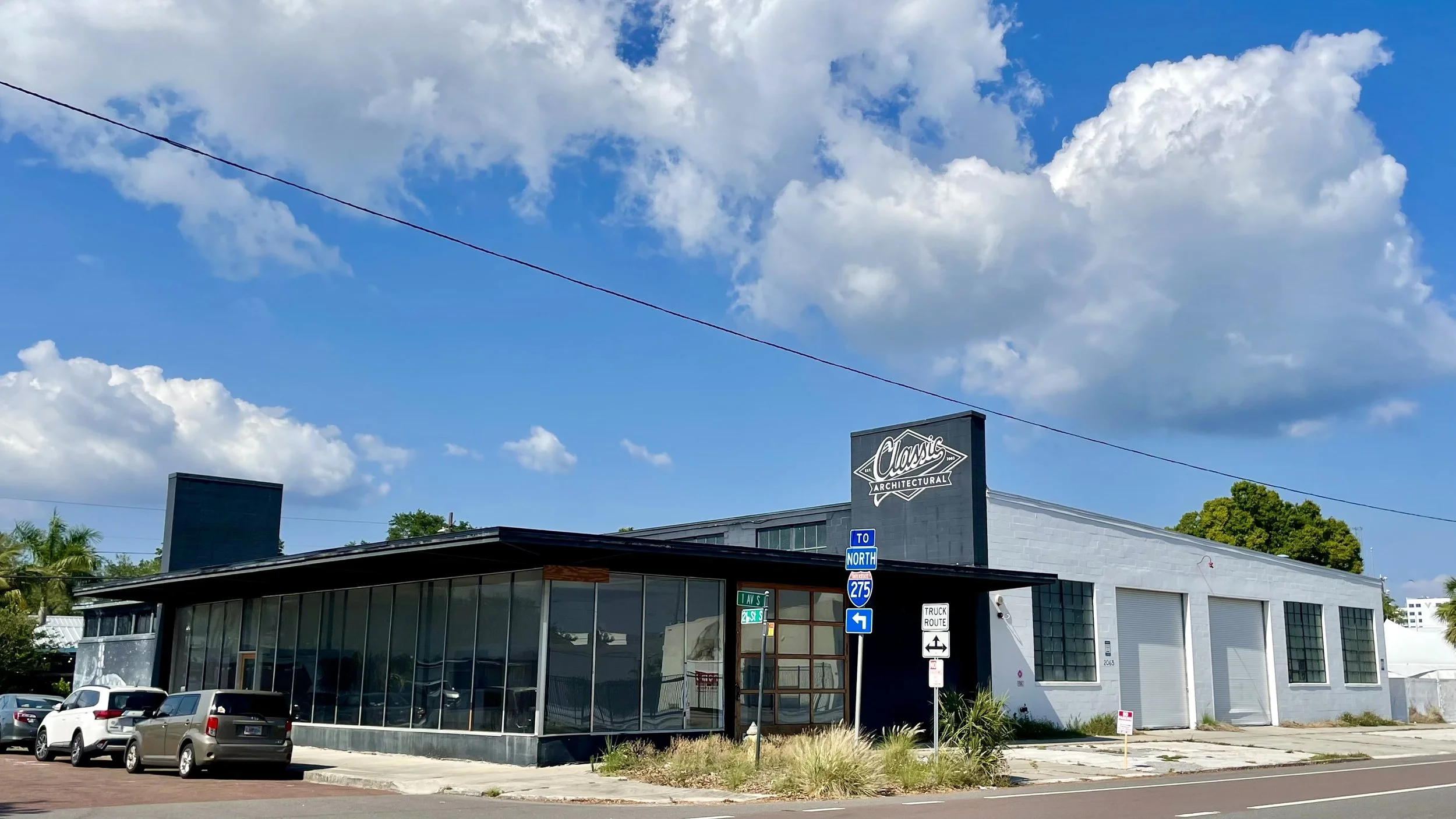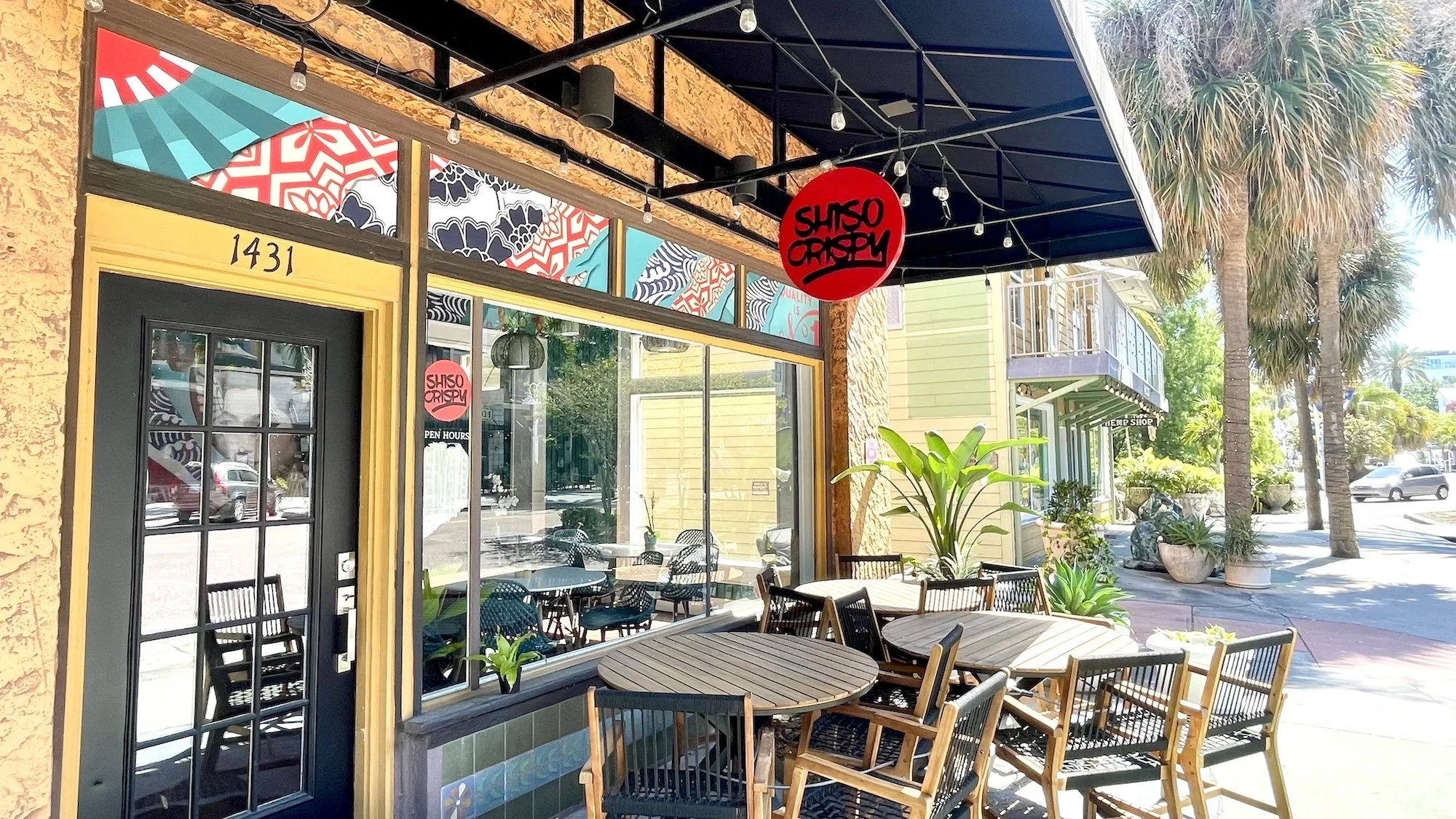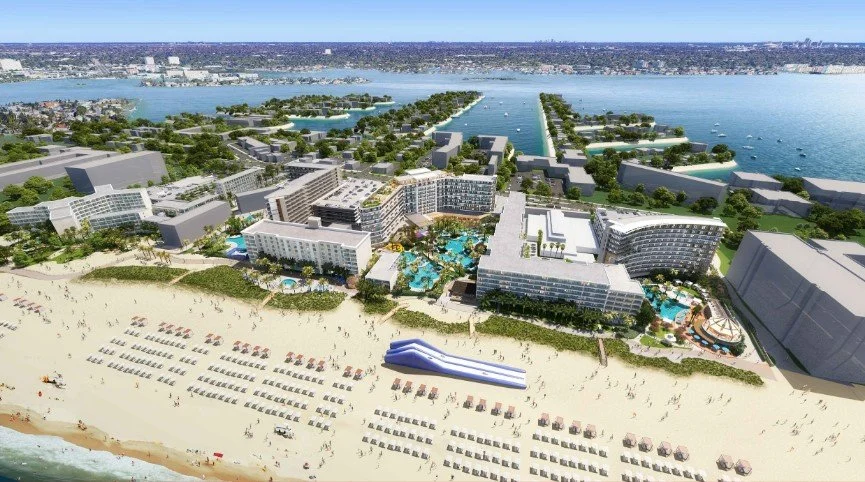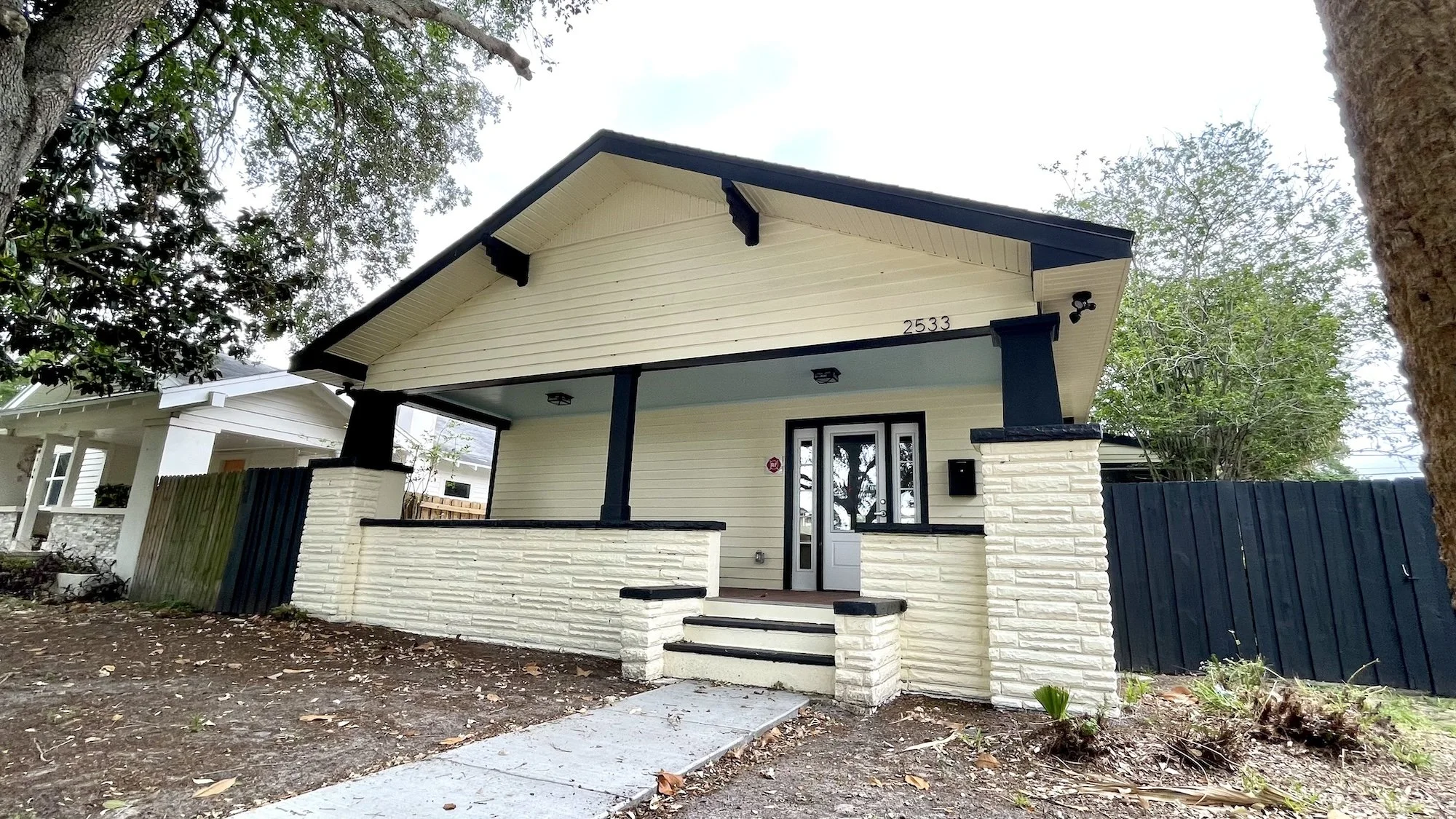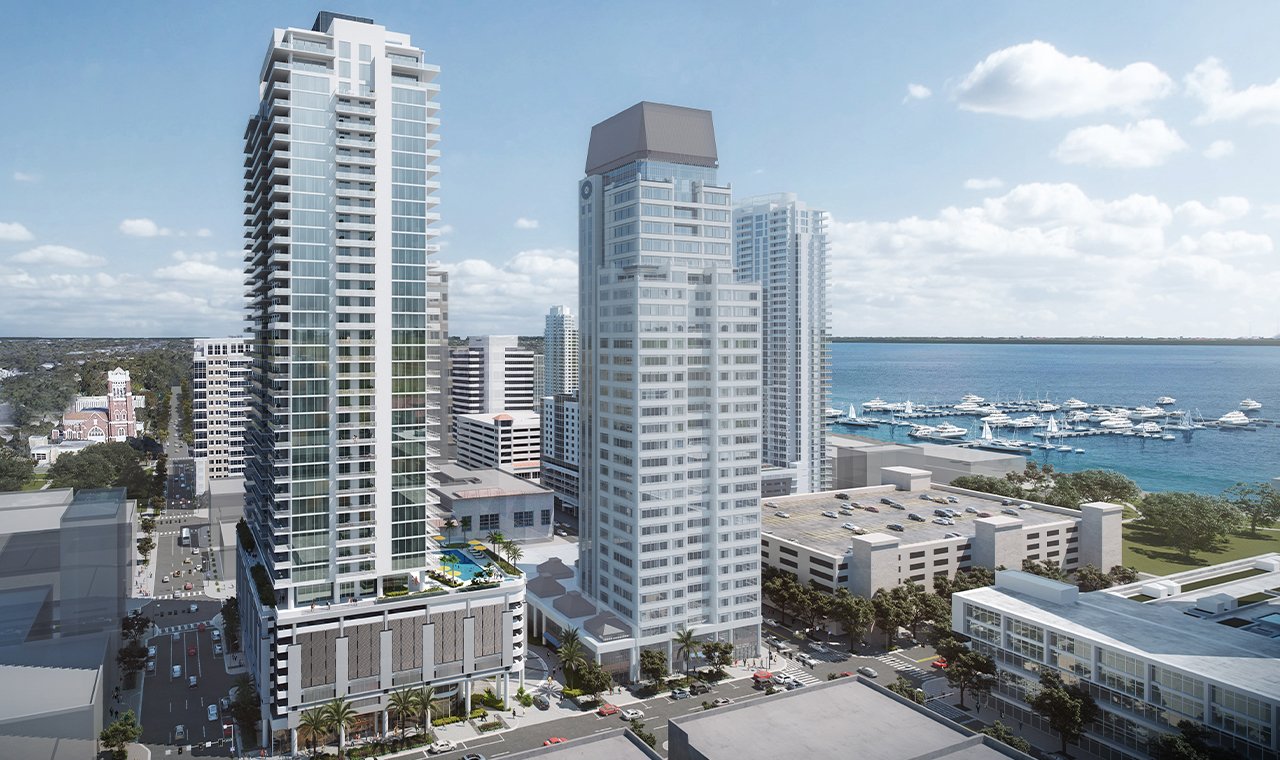Commissioners delay vote on massive expansion of St. Pete Beach’s Sirata resort
/The Sirata, a 382-key beach resort on St. Pete Beach, has proposed a massive expansion which would add two new hotels to the property | Sirata Beach Resort
After a nearly 11-hour-long deliberation, the owners of the Sirata Beach Resort in St. Pete Beach will have to wait until next week to receive a verdict on a massive planned overhaul of the resort and the addition of two new waterfront hotels.
The St. Pete Beach City Commission meeting began at 4 p.m. on Wednesday and ended around 2:30 a.m. on Thursday morning after commissioners passed a motion to defer the vote to 6 p.m. on Tuesday, February 27th.
Resort owner Columbia Sussex, a Kentucky-based hotel management company, is seeking conditional use permit (CUP) approval for the construction of a 290-key luxury JW Marriott hotel, a limited-service 130-key Hampton Inn, and renovation of the existing 382-key resort at 5300 Gulf Boulevard.
The 13-acre property, which Columbia Sussex purchased in late 2022 for $207 million, currently houses three buildings between three and eight stories.
A side-by-side comparison of the current layout (left) and the proposed plan for the Sirata resort on St. Pete Beach | CPP Wind Engineering Consultants
The plans, initially filed in early 2023, call for over 50 rooms at the Sirata Beach Resort to be eliminated and replaced by a new freestanding restaurant and pool.
The proposed JW Marriott hotel, which would have a permitted fourth-floor rooftop deck with a bar and dining, would be built at the northern portion of the property.
It would be the second JW Marriott in Pinellas County, as the first 15-story JW Marriott recently opened on Clearwater Beach at 691 South Gulfview Boulevard.
Meanwhile, the Hampton Inn hotel would rise at the southern end of the Sirata property.
Upon completion of the two new hotels and existing resort renovations, the property will contain a total of 646 hotel units, an increase of 264 units.
The proposed 15-story 290-key JW Marriott from Northeast | Pivot Studio
The key vote comes less than two months after four of five St. Pete Beach commissioners resigned due to Florida’s new personal financial disclosure rules. The newly appointed commissioners, who will be determining the fate of the planned project, were sworn into office just a few weeks ago.
Amid the change in the board makeup, Protect St. Pete Beach, an organization that has vocally opposed the Sirata Beach Resort development, is legally challenging the legality of the commissioner appointments, which were appointed by the remaining commissioners instead of elected by the residents.
An attorney representing Columbia Sussex also sent a letter to City Attorney Andrew Dickman and city commissioners earlier this month, requesting that Mayor Adrian Petrila recuse himself from the voting process as the mayor has “pervasive bias” against the project, stating he is the founder of Protect St. Pete Beach.
However, Petrilla contested that he was not involved in that organization and refused to recuse from the discussion and vote, confirming with the city attorney that he could review the project without bias.
The proposed 15-story 290-key JW Marriott from Northwest | Pivot Studio
Columbia Sussex's legal representative Elise Batsel, a partner at Stearns Weaver Miller in Tampa, and the development team, including Cincinnati-based architect firm PIVOT Studio and North Carolina-based civil engineering firm Kimley-Horn Associates, highlighted community benefits the new hotel projects will bring, such as:
Rebuilding and raising dunes for coastal protection
Widening sidewalks to 10 feet
Providing multiple public beach access points
Having all parking on-site to prevent congestion on Gulf Boulevard
Adding lighting restrictions and a special film on windows for sea turtle nesting safety
Creating 400 new jobs as a direct result of the development
Contributing $500,000, or $100,000 per year, for mobility services and improvements
The proposed 15-story 290-key JW Marriott from Southwest | Pivot Studio
Despite the economic impact and promised resiliency efforts, Columbia Sussex has faced significant opposition from residents of the neighboring Seamark condominiums, citing issues with wind conditions, incompatibility with surrounding developments, increased vehicular traffic, and interference with beachfront views.
A Protect St. Pete Beach member said the group has collected over 2,000 signatures from opposing residents living within one mile of the Sirata Beach Resort.
Joe Young, one of the owners of the family-operated Columbia Sussex company, disputed the concern about a potential wind tunnel effect and any negative impacts the development may cause on existing neighboring buildings.
He noted the new modifications, such as screening for the parking garages and implementing a further setback along the shoreline.
"Trust us, we've been doing this for 50 years," Young said to commissioners.
The proposed 15-story 290-key JW Marriott looking towards the ocean | Pivot Studio
In addressing staff and community concerns, the development group hired CPP Wind Engineering Consultants to review the massing of the proposed project to determine any potential terrain and local wind climate impacts.
CPP's assessment didn't find any significant issues that would trigger needed alterations to the current design of the Sirata’s planned expansion, according to submitted documents.
The development and legal team also argued the height and density are consistent and compatible with St. Pete Beach’s Comprehensive Plan, which allows a a density of 75 hotel units per acre (646 units on 8.62 buildable acres) in the city’s Large Resort District.
For reference, the neighboring 119-foot-tall Seamark condominium to the north has a density of 63 units per acre. The Bellwether Beach Resort to the south has 78 hotel units per acre at a height of 142 feet.
The proposed 130-key Hampton Inn from the northwest | Pivot Studio
Batsel said if the commissioners don’t approve the CUP, the owner may pursue development under the Live Local Act, which was approved in 2023, that more broadly allows affordable housing projects in commercial areas without the project being subject to public hearings.
The group would need to alter the hotel development plans to include residential and commercial uses to conform with the Live Local Act requirements.
“The Live Local Act, from an economic standpoint, makes the second most sense other than this CUP,” Batsel said. “That is not a plan A, and that is not what they want to do, but it’s important for you to understand the effect of your vote on what will go there if this isn’t approved.”
Commissioners will reconvene at 6 p.m. on Tuesday, February 27th, for a final CUP vote.

